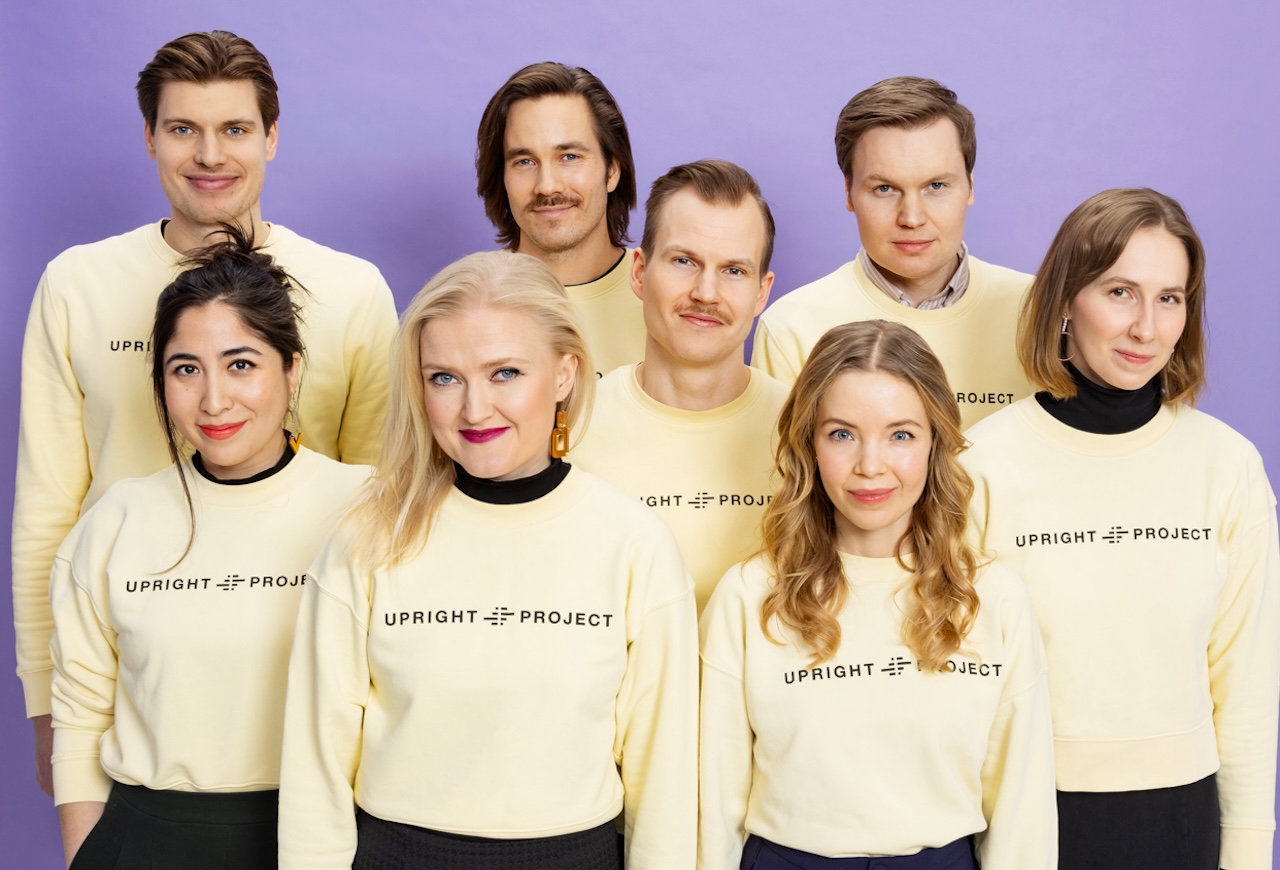The Finnish data company aims to bring greater transparency to the market by analysing the impact of companies and funds by sifting through millions of external sources, rather than just relying on corporate disclosures.

The Upright Project, a Helsinki-based startup, has just added 35,000 funds to an open-access global impact database covering more than 10,000 businesses that it launched in 2023. The firm hopes the additions will help sharpen up thinking over what impact means.
This expansion of Upright’s public database to include mutual funds and exchange-traded funds seeks to give retail and professional investors objective data on the environmental, health, social, and knowledge impacts of funds and fund holdings. Users are able to compare sustainability across funds and asset classes.
The model powering the database involves an innovative use of AI, which Upright has been working on for the last seven years. The company uses technologies deploying natural language processing to analyse over 250 million scientific articles, publicly available databases, and company disclosures to quantify the “science-based impact” of products and services traded in global markets. That knowledge is then applied to data on business operations to produce impact scores for companies and fund portfolios.

Annu Nieminen, founder and CEO of Upright, told Impact Investor that using the fund database gives asset managers and other investors greater understanding of their investments’ impact without having to rely on less detailed and transparent methods like ESG ratings or fund sustainability labels.
“We believe the world of ESG and sustainable investing has become a bit of a mess. It’s unclear what it even means for investment to be sustainable or impactful today. We thought a first step would be to have a more common understanding by producing a data set that anyone could access, scrutinize and question and that is based on an outside-in analysis rather than companies’ own sustainability disclosures,” she said.
The new funds database is also designed to enable asset managers to benchmark their investments against their peers’ funds in a way that allows them to be more sophisticated in the way they develop their sustainable investment practices. Upright said this should mean less reliance on more basic methods – for example, simply excluding industries generally considered harmful such as tobacco or fossil fuels.
Nieminen said she believed the database provided a much greater level of detail on impact than other data sources available to the markets, given it is based on a granular impact assessment of 150,000 products and services and their various positive and negative impacts.
To take a can of soda, for example, Upright’s software links all the scientific information it can find on the pros and cons of what goes into the product, such as the aluminium of the can itself and the ingredients of the soda, such as the sweeteners and colourings, and then provides product impact assessments. These assessments can then also be linked to the profiles of companies involved in the value chain for production and sale of those soda cans, including companies in upstream and downstream, like aluminium producers or fast food chains.
“By doing this, we end up with a knowledge graph that effectively covers the impact of all products and services traded in the whole private sector, linked to companies,” Nieminen said.
Diverse user base
Upright’s business model means that, while much of the database is open access, some elements are reserved for paying customers, who are also allowed to integrate the database with their own in-house software through an application programming interface for ease of interrogation. Paying customers have access to information on more companies – some 50,000 in total rather than the 10,000 in the public access database.
These include large-scale asset managers, supra-national institutions, private equity and venture capital firms using Upright’s data for their own sustainability reporting and investment management. Corporates themselves also use the data for impact reporting compliance.
Upright says it has more than 250 customers including Royal London Asset Management, APG, Pictet, European Investment Bank, European Investment Fund, Churchill, Permira, LGT Capital Partners, EQT, Nasdaq, Nordea and Aktia.
Users of the public database come from a wide variety of backgrounds in addition to market participants, including academic researchers and even students checking up on the impact credentials of potential employers.
Upright has analysed findings from the database to provide some illustrative insights, among which are that 17% of Article 9 funds, the “greenest” category of EU classification, perform worse in terms of impact than the average Article 8 fund, and that 38% of all 35,000 funds on the database are estimated to create more negative than positive impacts on the world.
The analysis also shows that Article 9 funds do outperform the market in terms of their environmental impact, but do less well with their social contribution. Upright attributes this imbalance to the current trend towards environmentally focused funds and perceived difficulties in quantifying positive social impacts.






